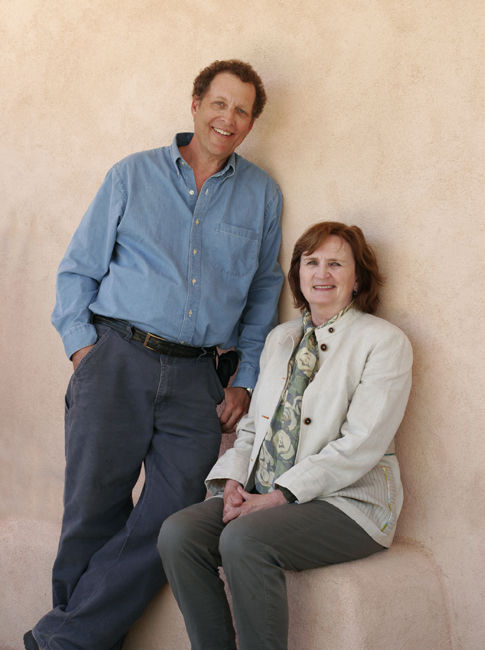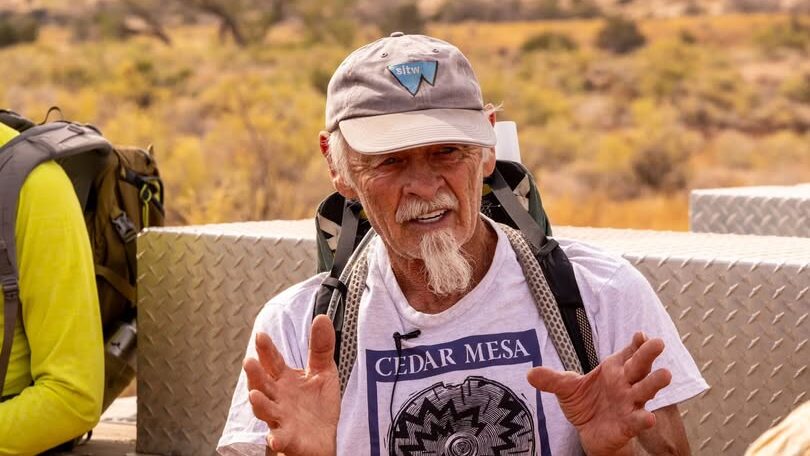Some information may be outdated.
Barney Frank’s public persona has never changed much over the years.
Skim through a single 2011 New York Times article about the former Massachusetts congressman, and you’ll find numerous anecdotes about his tongue-lashings, “flavorful putdowns” and his well-known ability to leave even hardened political reporters in tears.
But viewers who tune into Showtime this October will see a much different side of the 16-term congressman. “Compared to What?,” which premieres on the cable network on Oct. 23, presents Frank as a surprisingly average and family-oriented man who is deeply in love with his longtime partner and husband.
Local filmmakers Sheila Canavan and Michael Chandler set out to create a documentary that is both a portrait of Frank’s personal life, as well as the story of his life in Congress.
“He talks in the film about how much he wanted a normal life,” Chandler said.
Granted, Frank has an outwardly sharp sense of humor and fierce intellect that could be intimidating to some.
“Barney has a very tough exterior, and he could bark at you,” Canavan said.
But underneath, she said, he’s a tender person. Chandler, likewise, compares him to a prickly pear cactus: Frank is thorny on the outside, he said, but sweet on the inside.
The idea of a documentary about Frank had been in the back of their minds for some time, although it only came to fruition after he made the decision to step down.
“When we heard him announce his retirement, we said, ‘It’s now or never,’” Canavan said.
The film uses archival footage to chronicle Frank’s early years in the U.S. House, as well as his rise through the Democratic ranks that led him to a key leadership position as the chair of the House Financial Services Committee. Frank held that position at a critical time in U.S. history, as the global financial crisis hit, and Congress enacted key legislation aimed at putting the national economy back on track.
“Compared to What?” is Canavan’s debut film as a co-director; Chandler is well-known for his work on other documentary and feature films, including his Academy Award-nominated editing on Best Picture winner “Amadeus,” as well as director Carroll Ballard’s beloved adaptation of Farley Mowatt’s “Never Cry Wolf.”
To promote their first film as co-directors, the couple made the rounds at the Tribeca Film Festival and other events around the country, and they eventually found a champion in Showtime President David Nevins.
According to Canavan, Nevins was looking to bolster the network’s documentary lineup, and he voiced an interest in a film about Frank, in particular. He happened to make those remarks within earshot of Utah Film Center founder Geralyn Dreyfous – who shares an executive producer credit on the film with Jamie Wolf and actor Alec Baldwin.
Their hectic filming schedule began in late 2011, as they followed the man that Chandler calls a “perpetual motion machine” at work day in and day out.
“We would start filming him at 8 a.m., and he would still be going at 10 or 10:30 at night, and that was seven days a week,” Canavan said.
Canavan, who worked with Frank when she was 19 and he was 27, found that Frank is still the same guy all these years later, although she initially feared that he may have grown jaded.
“I really thought that he would be quite cynical,” she said.
That outcome might be expected, given the well-documented instances when other politicians leave office feeling completely disillusioned about their time in Washington, D.C.
“He isn’t like that,” she said. “He’s the eternal optimist.”
Since he left office, Frank published a book that reflects on his years in Congress, and he continues to give speeches that call on voters to engage in the political process.
“He’s trying to make citizens more aware of their responsibilities in a democracy,” Canavan said. “He has zero tolerance for people who don’t vote.”
Canavan and Chandler are clearly not fans of former U.S. House Speaker Newt Gingrich – who, they maintain, launched a concerted effort to undermine Americans’ faith in their own government, even as Frank worked to bolster that faith.
But they say their documentary is not a partisan film.
Although Frank has a well-earned reputation as a feisty liberal, he also had history of reaching across the aisle to work with the likes of former Rep. Ron Paul, R-Texas, on bipartisan legislation, and the filmmakers also reached out to some of his Republican colleagues. They interviewed former U.S. Treasury Secretary Hank Paulson and former Rep. Spencer Bachus, a Republican from Alabama who served as Frank’s GOP counterpart on the House Financial Services Committee, among others.
Last but not least, they talked to a man who might be just as witty and outspoken as Frank: former Republican Sen. Alan Simpson of Wyoming.
Simpson recounted his conversation in support of Frank’s unprecedented decision to come out of the closet in 1987 – an era when the country’s overall attitudes about gays and lesbians were markedly different than they are today.
“That’s what makes Simpson’s reaction so significant,” Chandler said.
At the time, the long-term political consequences of his decision were unknown. Yet voters in his congressional district continued to return him to office, and Chandler said that Frank’s colleagues began to view him differently.
Chandler paraphrased a joke that Frank likes to make about the political transformation that occurred during his time in office: When he first started out, he says, many people couldn’t accept an openly gay person in office. Today, he quips, it’s more acceptable to be gay than it is to be a congressman.
As public attitudes changed, Frank once again made history when he tied the knot with his longtime partner Jim Ready – a moment that Canavan and Chandler captured on film.
“I think that he recognized the historical importance, but he was also getting older, and he didn’t want to wait any longer,” Canavan said.
Nowadays, Chandler said, Frank is perhaps just as well known for his legislative work to reform the country’s financial industry as he is for his sexual orientation.
“It took him 30 years to achieve that,” he said.
The filmmakers have a shared interest in that field.
Canavan was a nationally recognized attorney who specialized in consumer law and predatory lending fraud, helping elderly people who fell victim to mortgage scams. She continued to work on cases after they moved to the Moab area in 2001, yet by 2011, she was ready for a change.
“I was really in a reflective mode,” she said.
Chandler, meanwhile, produced and directed a PBS Frontline documentary that was the first to shed light on Enron’s financial manipulation of energy markets.
Long before he made his name as a documentary filmmaker, Chandler’s name popped up during the credits of many a film from the 1980s. He edited “Taxi Driver” screenwriter Paul Schraeder’s biopic of novelist Yukio Mishima and, uh, “Howard the Duck.” His last credit on a feature film was 1995’s “Empire Records” – and Chandler said the shift away from Hollywood features was by design.
“I realized that I had yet to make my own film,” he said. “It was getting to the point of do or die.”
On his own, he has more creative freedom to pursue the kinds of stories that speak to him.
Financing, though, is another matter entirely. However, with help from a long list of people, including fundraising wizard Amos Van Horn, the couple were able to get their latest project off the ground, and they turned in the final film to Showtime just last week.
Moab-area residents offered helpful feedback about the film during work-in-progress screenings, and many others joined the film’s Indiegogo crowdfunding campaign that is ultimately a tribute to the spirit of civic-mindedness.
“It’s really a story of public service and public servants in the name of Barney Frank,” Canavan said.
“Compared to What?,” movie about outspoken Congressman Barney Frank, premieres Oct. 23
“When we heard him announce his retirement, we said, ‘It’s now or never.’”
Appreciate the coverage? Help keep local news alive.
Chip in to support the Moab Sun News.





